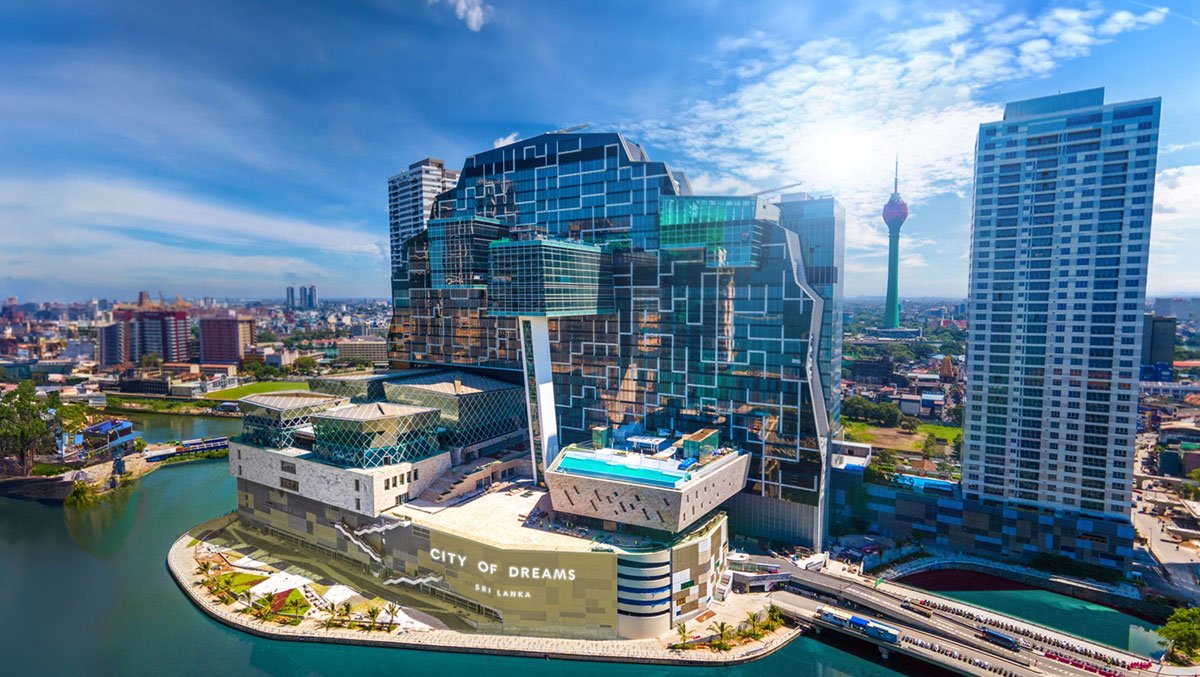ECONOMYNEXT – Sri Lanka, the world and US and the world is suddenly facing a triple whammy from the nationalist and interventionist actions of President Donald Trump that as well as the effects of the Fed’s inflationism via the excess liquidity driven single policy rate (ample reserves regime).
The Dow Jones index tumbled 1.23-pct (542 points) on Friday as the Trump tariffs went into effect, albeit at a lower than initially expected rate.
The Euro Stoxx 50 Index fell 154 points or 2.9 percent, with the FTSE 100 falling 0.7 percent, and the Nikkei falling 270 points, or 0.66 percent.
Regime Uncertainty
Trump’s actions where the government changes the expected rule of the game is called regime uncertainty.
Regime uncertainty which is an undermining of established rules governing, reduces the confidence of doing business and creates uncertainty and distrust of the system.
The so-called New Deal, where a number of state interventions were made by the Democratic government by mostly Keynesians killed investment and the first recovery from the Great Depression by making the investment environment uncertain.
Among the interventions was the devaluation of the US dollar and banning gold for both private holding and contract writing which led to savers being expropriated.
Sri Lanka has done extremely well to reduce the Trump tariff to 20 percent and ward off the worst effects.
In Sri Lanka President Anura Kumara Dissanayake has been acting carefully not making any sudden decisions giving continuity and policy stability except for one or two incidents.
READ MORE : Regime Uncertainty: Why the Great Depression Lasted So Long and Why Prosperity Resumed after the War
Private citizens and businesses are un-armed and easily spooked, and it matters little to them whether pre-existing rules are de jure or de facto.
Sri Lanka Customs for example has ordered the re-export several hundred cars after suddenly deciding to implement a rule they had been ignoring for years and has signalled as permissible procedure in one intervention.
The Trade Ministry imposed price controls and created problems, but largely Sri Lanka has been a steady ship under the current administration allowing economic agents to work within a known system.
Resisting calls to ‘do something’ and intervene is difficult to resist.
The Disappearing Jobs
The second whammy on Friday was the revised jobs report, showing that new jobs created in May and June (after Trump’s taxes in April) was much, much lower than previously reported.
Predictably Trump killed the messenger by sacking the Erika McEntarfer, the commissioner of the Bureau of Labour Satistics claiming that jobs data “are being produced by Biden appointee”.
“We need accurate Jobs Numbers,” Trump wrote on his Truthsocial.com platform. “She will be replaced with someone much more competent and qualified. Important numbers like this must be fair and accurate, they can’t be manipulated for political purposes.”
https://truthsocial.com/@realDonaldTrump/posts/114954846612623858″
McEntarfer said there were only 73,000 Jobs added (a shock!) but, more importantly, that a major mistake was made by them, 258,000 Jobs downward, in the prior two months,” Trump added.
“Similar things happened in the first part of the year, always to the negative.”
It is normal for jobs to fall when the Fed ends an artificial boom of its own creation, which creates jobs that would not have been there had it been running a more prudent policy.
The Fed had been running a highly inflationist framework called the ample reserves regime, with trillions of excess liquidity, which was started by Bernanke to push up asset prices after the collapse of the housing bubble.
Macro-economists in the Fed, (which then infected the ECB) later ‘normalized’ the abundant reserve regime, adding fuel to the crypto bubble, stocks and also emerging market debt. As the single policy rate hit those countries, they are defaulting.
War Drums Whammy
The third whammy on the triple witching Friday was Trump deploying nuclear subs closer to Russia, after comments by ex-Russian President Dmitry Medvedev.
After years of being what is generally called a ‘Putin Lover’ and peddling his false narrative that Russia attacked Ukraine due to its wish join NATO, Trump has now suddenly fallen out with his friend during visits to Russia as a private investor.
Ukraine gave up nuclear arms and no one was interested in joining NATO until Putin attacked Georgia after cutting its debt with oil profits from the Fed housing bubble and strengthening its economy.
Instead of ignoring Medvedev Trump has now deployed nuclear subs.
Putin is a cool customer who has run one of the largest and most resource rich, and resourceful countries for decades, killing off the democratic opposition and tightening his grip on the system.
Trump is the leader of a democratic nation, who has term limits, a free press and a voting population who are used to kicking out Presidents like empty Coke cans.
While Trump has an advantage in extreme socialist policies of the Democrats and a Fed which is creating inflation and unhappiness after dumping its scarce reserve regime for the single policy rate, the business community which funded him is far from happy.
Is there a ticking bomb in the US?
After years of stimulus advocated by macro-economists, US government finances are in a bad state.
Russia avoided the stimulus and had very strong government finances until the start of the war. However, now the situation is different.
Though the Ruble was successfully floated under a 4 percent inflation target the Bank of Russia has been unable to fully bring down inflation. Russia is also trying to fight war with mercenaries, no conscription and the economy has started to slow down.
The US fiscal bomb, if it goes off however can have devastating consequences, more than other countries, since the entire world is linked to the country.
RELATED : Sri Lanka could get hit from a disorderly US tumble: Bellwether
Due to pressure from the macroeconomists in the Fed and Treasury and mistaken criticism of the Asian savings glut, countries like China and others are no longer firmly pegged to the US dollar and buying Treasuries as they did from 1950 to around 2005.
After 2014 when China and others shifted to more floating regimes, reserve collection has basically stopped. That is an own goal of the macroeconomists who shouted from the rooftop when long term rates did not go up when the Fed hiked rates shortly before the housing bubble broke.
When money was printed to fire the housing bubble by the Fed large volumes went to housing. Now banks are scared of housing and there are actual housing shortages in many countries. Instead money went to government debt for macro-economic policy and stimulus.
Government balance sheets are remarkably bad, compared to the end of the housing bubble and the Great Depression.
In the deflationary late 1990s the US ran budget surpluses for the first time since the collapse of the gold standard. Fed fired the Roaring 20s bubble in the 1920s as Treasury ran budget surpluses.
Macro-economists have hit own goals all over.
The Trump tariffs have brought more revenues to the government, which is good, but it must have come as lost profits (and new jobs it seems) in company balance sheets.
Trump’s expectations of greater investments – the US was a top recipient of FDI and bond investments in the past which created the trade deficit in the first place – due to its stable policies and practices like grandfathering, when rules were changed.
The biggest problem there seems to be little knowledge of how to fix the system in the US in both major parties.
US downturns tend to have ripple effects across the world and Sri Lanka has to be vigilant and not think that this country can ‘spend its way out of trouble’ as the US did from 2009 cutting rates when private credit is strong or going on capex spree. (Colombo/Aug02/2025)
Continue Reading

























You must be logged in to post a comment Login